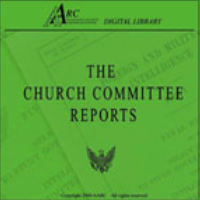25 Years Later, Senators who Helped Create Foreign Intelligence Surveillance Court Say It Now Does Opposite of Intended Purpose

Trying to prevent history from repeating itself, former Vice President Walter Mondale (D-Minnesota) and former Sen. Gary Hart (D-Colorado), who in 1978 helped draft the Foreign Intelligence Surveillance Act (FISA), have joined the fight against the domestic spying activities of the National Security Agency (NSA) revealed by whistleblower Edward Snowden, who is currently in exile in Russia.
Joined by more than a dozen prominent law professors, Mondale and Hart filed a brief on Friday in federal court asking the judge to allow them to file an amicus curiae (friend of the court) brief in support of a lawsuit filed by the American Civil Liberties Union. In light of the fact that both the ACLU and the government have no objection to the filing of the brief, the court is expected to allow it. The brief will provide historical context for FISA’s passage from two main participants.
The FISA was passed in 1978 after an extensive Congressional investigation—known as the Church Committee after Chairman Sen. Frank Church (D-Idaho)—that began as a probe into abuses of power by the Nixon administration and became an exposé of government spying on Americans citizens. Both Sens. Mondale and Hart served on the Church Committee.
The Committee uncovered several secret spy programs directed at Americans, including NSA’s Project Minaret, which engaged in warrantless surveillance of U.S. citizens on a “watch list”; NSA’s Project Shamrock, which conducted warrantless wiretaps with private sector help; FBI’s Cointelpro program, which hounded Dr. Martin Luther King, Jr. and others; and CIA’s Operation Chaos, which targeted left-wing groups like Students for a Democratic Society, the Black Panther Party and Ramparts Magazine.
According to the brief, the NSA domestic spying program undermines one of the key reforms included in FISA: the Foreign Intelligence Surveillance Court (FISC), which is supposed to supervise surveillance activities and which is “empowered…to consider each instance of placing an electronic wiretap.”
“In contrast,” say Mondale and Hart, “the NSA’s program…delegates such oversight to the executive, leaving all further inquiries of the databases to the agency involved.” As a result, “the FISC is not performing its most basic function: protecting U.S. persons from undue incursions into their privacy.”
Since Snowden’s disclosures began in June, critics have begun calling the FISC a mere rubber-stamp for indiscriminate warrantless surveillance, a characterization reinforced by the court’s record of almost never rejecting a government request.
Even worse for the administration, claims by President Barack Obama that the FISC has the ability to effectively supervise the snooping was undercut by statements by FISC Chief Judge Reggie Walton, who admitted that, “FISC does not have the capacity to investigate issues of noncompliance, and in that respect the FISC is in the same position as any other court when it comes to enforcing compliance with its orders.”
The Manhattan-based case brought by the ACLU is only one of several legal actions that have been brought against the domestic spying, including others filed in New York and California. The next step in the ACLU case will come November 1, when Judge William H. Pauley will hear arguments over whether to issue a preliminary injunction blocking the spy programs.
-Matt Bewig
To Learn More:
Surveillance Law Meant to Curb Spying, not Boost It, Senators Say (by Adam Klasfeld, Courthouse News Service)
Motion of Nonparties Former Members of the Church Committee and Law Professors to File an Amicus Curiae Brief in Support of Plaintiff (ACLU v. Clapper) (pdf)
Obama Assurance of Surveillance Oversight is undercut by FISA Court’s Chief Judge (by Noel Brinkerhoff, AllGov)
NSA Violated U.S. Privacy Laws at Least 2,776 Times…In One Year (by Matt Bewig, AllGov)
- Top Stories
- Unusual News
- Where is the Money Going?
- Controversies
- U.S. and the World
- Appointments and Resignations
- Latest News
- Trump Renames National Football League National Trump League
- Trump to Stop Deportations If…
- Trump Denounces World Series
- What If China Invaded the United States?
- Donald Trump Has a Mental Health Problem and It Has a Name






Comments